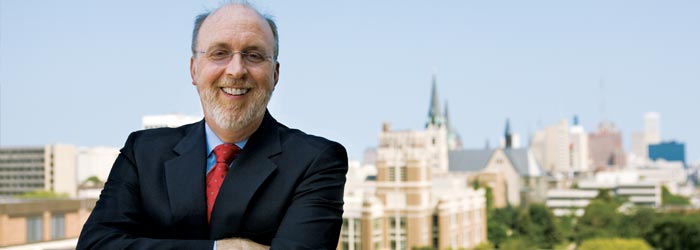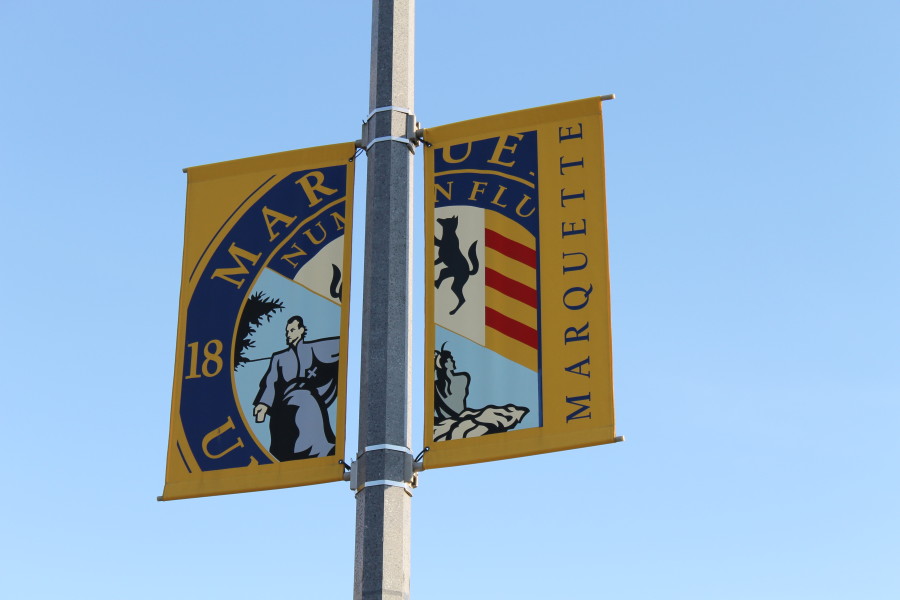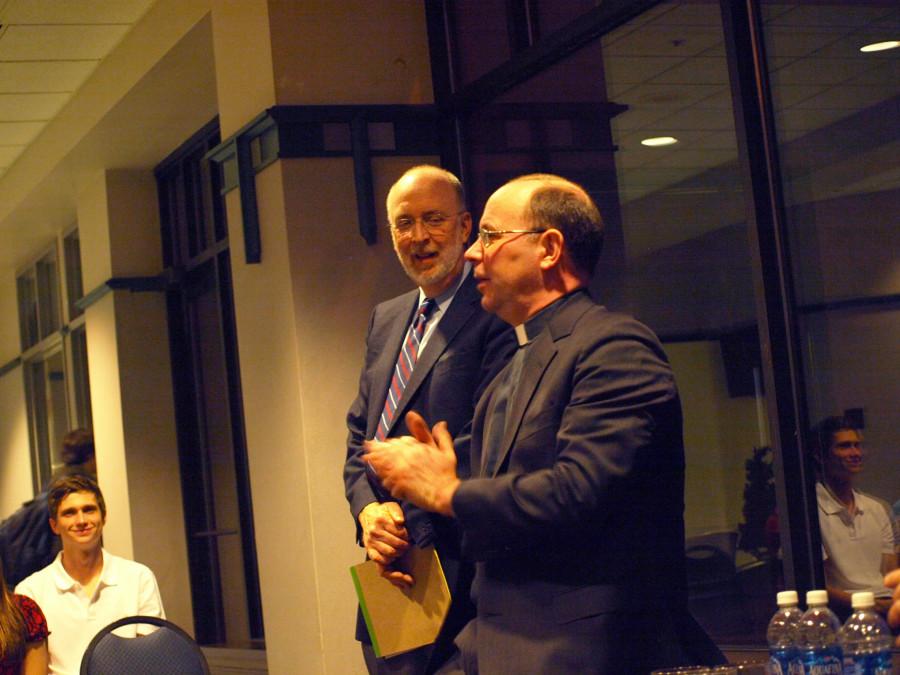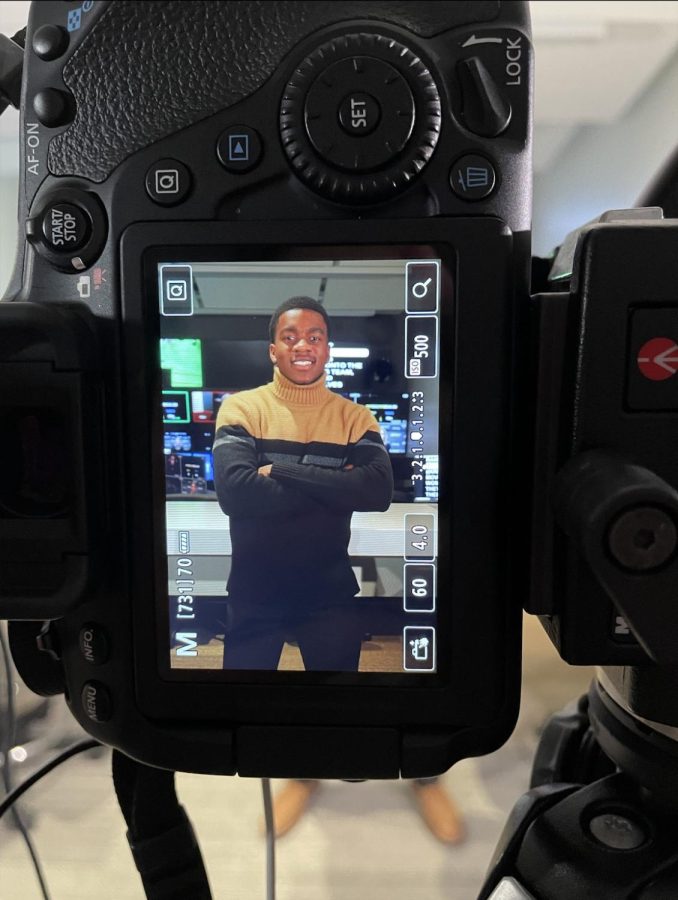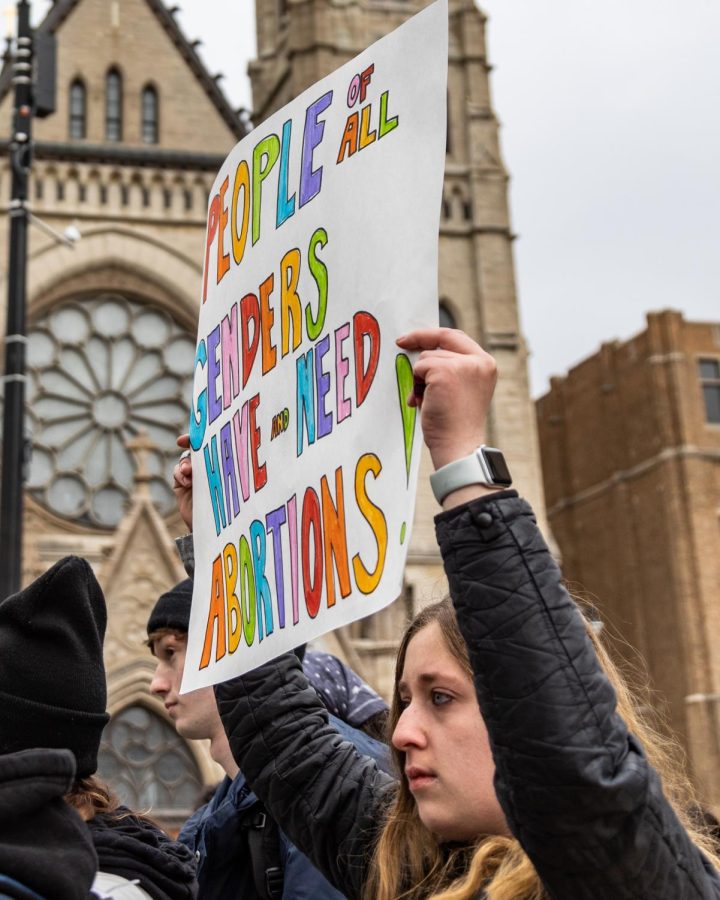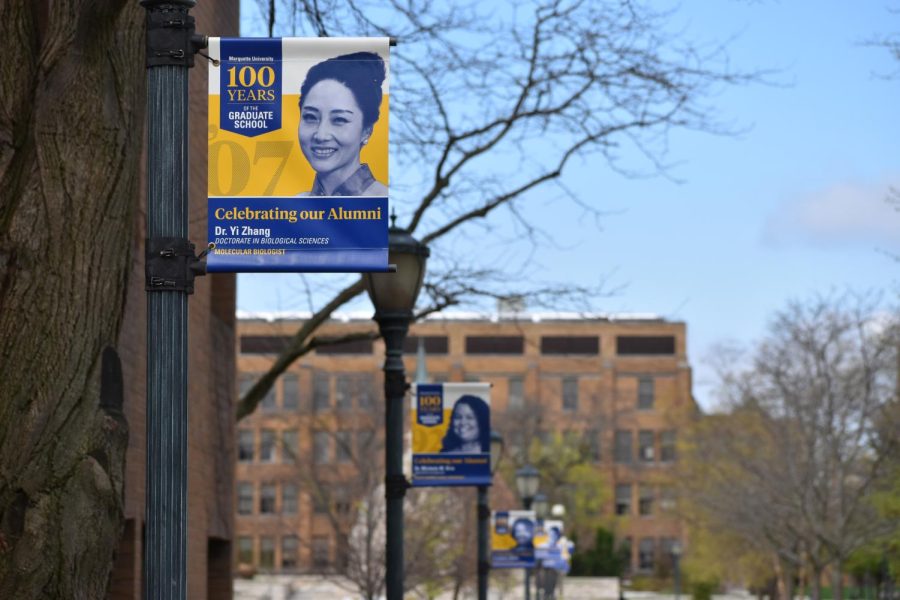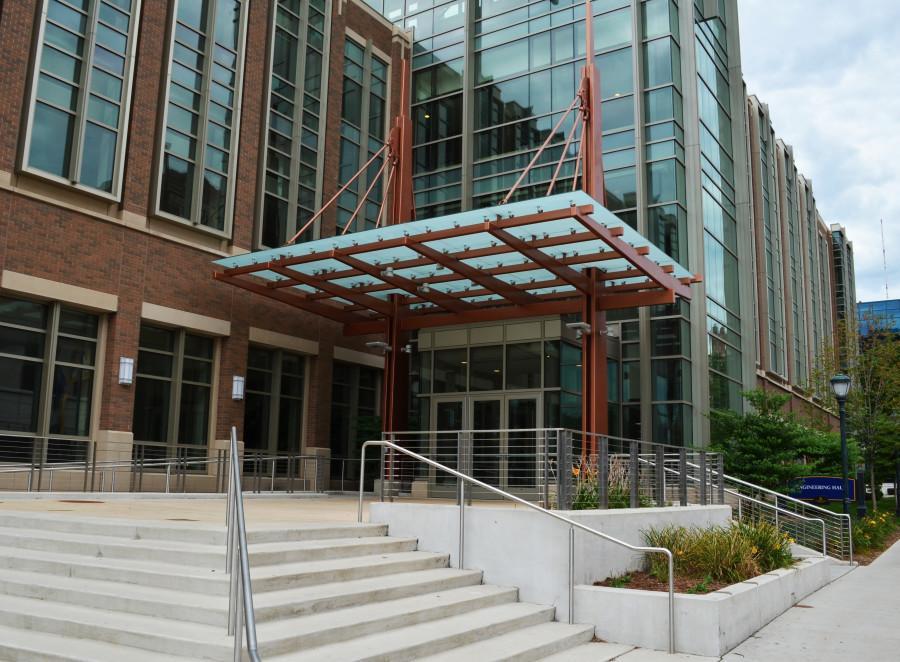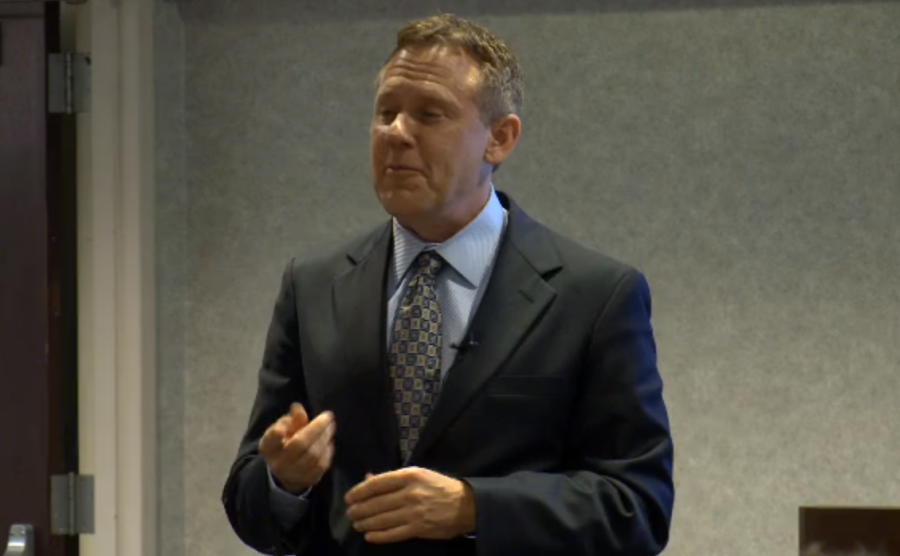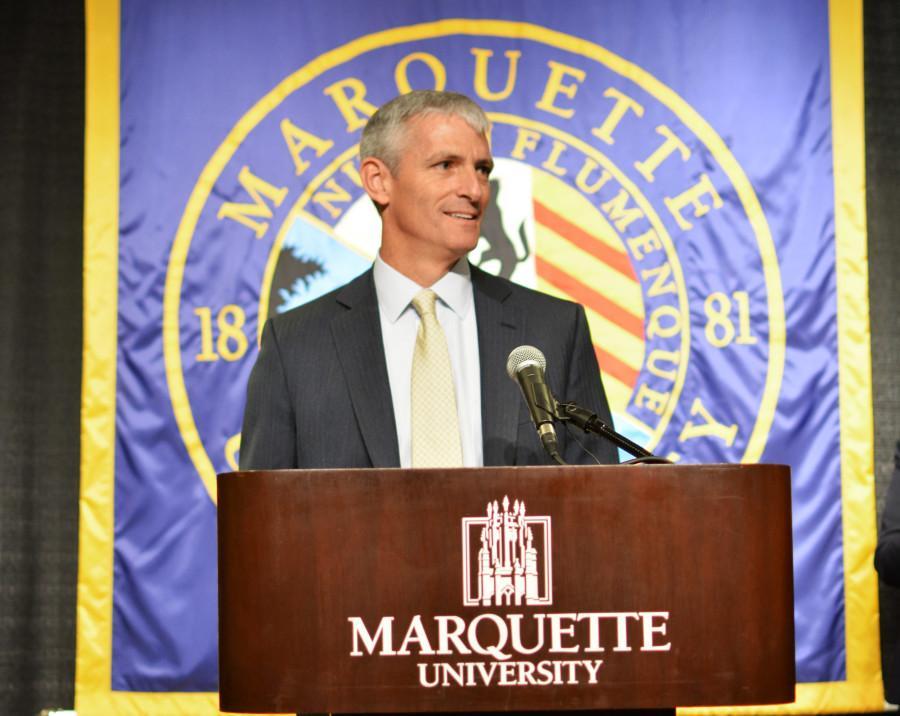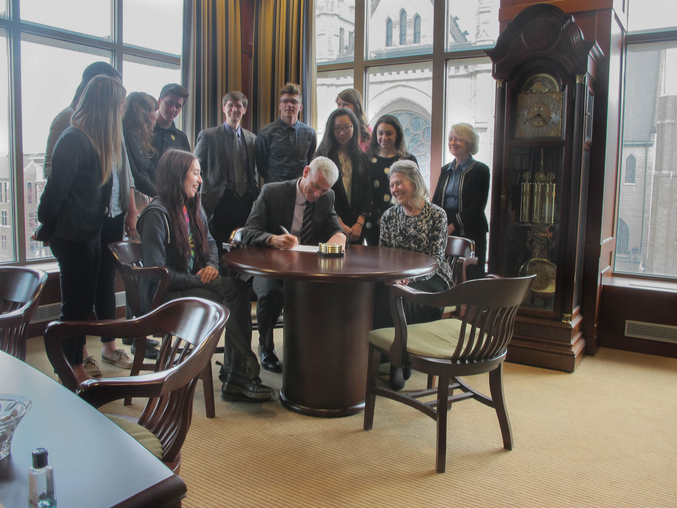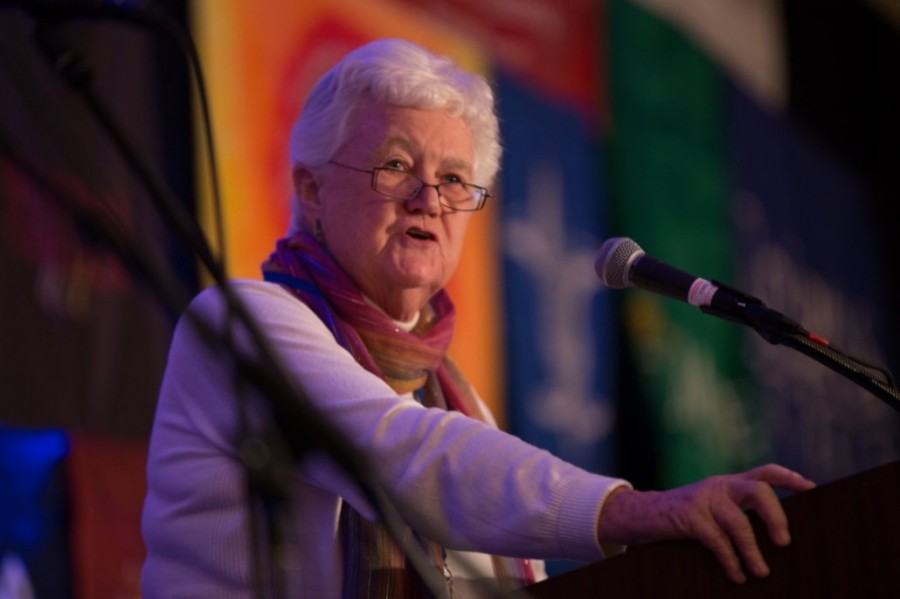The writing process for Marquette’s strategic plan is expected to pick up momentum with the recent creation of the strategic planning coordinating committee and the University President the Rev. Scott Pilarz’s articulation of five themes that will guide the plan’s progress. The members of this committee and the five themes were announced Aug. 28 in a letter from Pilarz to the Marquette community.
“The pace of work on the plan will accelerate dramatically this fall as we strive toward our goal of delivering a final strategy to the Board of Trustees in May 2013,” Pilarz wrote in the letter.
The strategic planning coordinating committee is charged with the task of facilitating conversations with members of the Marquette community to gather an accurate representation of the campus’s concerns and goals, Jeanne Hossenlopp, vice provost for research, dean of the Graduate School and one of the co-chairs of the committee, said. All of this information will be relayed to the president and provost, who will then proceed accordingly.
Pilarz and Provost John Pauly are the gatekeepers and decision-makers for the plan’s content. They will be the ones who actually write the university’s strategic plan, according to the university’s webpage devoted to the strategic planning.
The coordinating committee is also responsible for carrying out an “environmental scan” of external and internal factors that may affect the university in the future. According to Hossenlopp, the committee will then apply this external information internally to decipher how Marquette can respond positively to a changing environment.
Timothy Ripplinger, the senior associate vice president of university advancement and a member of the new committee, said external factors the committee will examine include changing student demographics, faculty demographics, philanthropic trends, civic and community issues, governing and regulatory restrictions, teaching and learning developments, higher education finance, revenue models, and an analysis of the infrastructure in other institutions.
Hossenlopp said that they will also reference the strategic plans and major developments of other peer Catholic universities to “make sure we’re not missing anything.”
The committee will draft a report with the findings and data from the environmental scan. The report will be released by December 2012 to the provost and president.
The committee is comprised of 15 representatives from different areas of university life and two co-chairs who will preside over the members’ activities. Two students–both an undergraduate and a graduate student–are also committee members.
Hossenlopp said the coordinating committee is in the beginning stage of its deliberations. Its members have met once, on Sept. 4, and are expected to meet once every two weeks moving forward. To ensure an honest representation of campus perspectives, Hossenlopp said she plans to meet with various student groups, such as the Marquette Student Government, and hopes to foster conversation across organizational boundaries.
Faculty have already begun work on their environmental scan and plan to meet periodically with the provost and president to discuss their findings, Hossenlopp said.
William Welburn, the associate provost for diversity and inclusion, is a member of the coordinating committee and is currently examining national and regional trends pertaining to student demographics with a special emphasis on demographic diversity. Like Hossenlopp, Welburn emphasized the early nature of the committee’s progress but noted that if the student body displayed “genuine interest” in a particular issue, such as diversity, it will be relayed in full to the president and provost.
“History tells us that when it comes to diversity, Marquette students have demonstrated their interest in what the university does,” Wellburn said in an email. “Much like those student voices of the late 1960s that helped move the institution toward such initiatives as the Educational Opportunity Program, I would expect that student voices will be heard in the work that we are doing in anticipation of a strategic plan.”
The process for developing the five to seven-year strategic plan began last academic year with 17 different listening sessions on campus at which students were asked a set of four questions pertaining to Marquette’s uniqueness, vision of university success, university goals and the challenges that arise in reaching these goals.
Either Pilarz or Pauly was present at each listening session. The results of these listening forums were released in a summarized report on May 15, 2012. Such feedback emphasized a need for investing in quality university programs, more flexibility in the budget for new initiatives, increased diversity in the Marquette community and more research and recognition of academic excellence among both students and faculty.
This feedback helped Pilarz to formulate the “five overarching ideals” that will serve as areas of focus for the university to improve upon in the future. The five ideals are the following: pursuit of academic excellence for human well-being; research in action; service, social responsibility and civic engagement; formation of the heart and soul; and stewardship of valuable resources.
“This (plan) will really give Father Pilarz an opportunity to articulate his vision for Marquette,” Hossenlopp said.
The University Leadership Council, which consists of administrative vice presidents, the Dean’s Council and the University Academic Senate, are also expected to provide guidance throughout this process, according to the university’s webpage devoted to strategic planning. Specifically, the UAS needs to both “evaluate and endorse” the new written plan.

